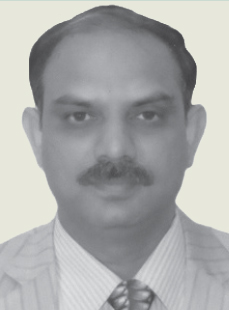Speaker

Bio
Dr. Brijendra Pateriya, Director, Punjab Remote Sensing Centre, a versatile professional possessing a rich and unique experience of 24 years from academia, industry and government at senior level management & administration. Dr. Pateriya, a Doctorate in Geosciences from Vikram University, Ujjain, associated with scientific bodies such as Indian Science Congress Association, Indian Society of Remote Sensing and Indian Water Resource Society as life member. He is a member of various national & state level policy and decision making committees. Known as an institution builder and pioneer in developing processes for new and difficult aspects. Currently playing a lead role to harness the potential of space and geospatial technology in the field of agriculture management, natural resources, rural and urban planning.
Abstract
In current scenario Geospatial technology holds a key to address various aspects of effective agricultural management and providing solutions for complex problems. Satellite imageries providing the near real time situations and GIS tools offering analytical results in shortest possible time. This helps for planning the resources and reaching out to the users with corrective measures. In Punjab it is widely in use for providing timely and accurate information to planners and users, may be it crop acreage and yield estimation throughout the crop year, mapping the area under crop residue burning to protect soil fertility and environment. Moving towards crop diversification plans and precision farming in a scientific manner. It is not just applied for traditional crops but also cash crops and horticulture. Research is in progress for organic carbon in soils of Punjab. Remote sensing technology and GIS are applied to ascertain the issues of soil and water resource constraint for better crop management and yield production lead to improvise the condition of farmers and helping the decision and policy makers to implement various schemes benefiting to farming community at large. The integrated studies are taken up to bridge the gap between lab and field also sharing information among various stakeholders.